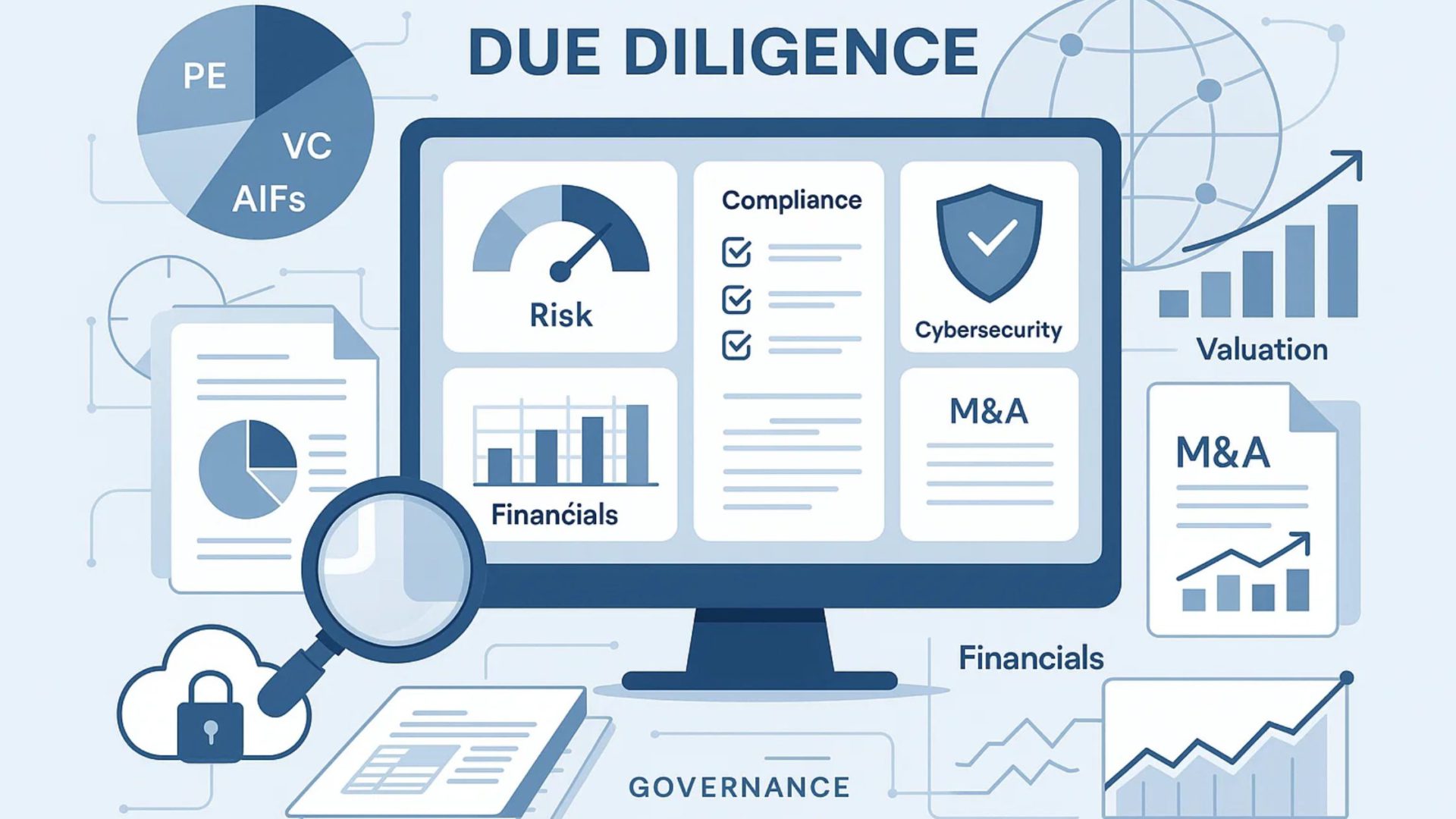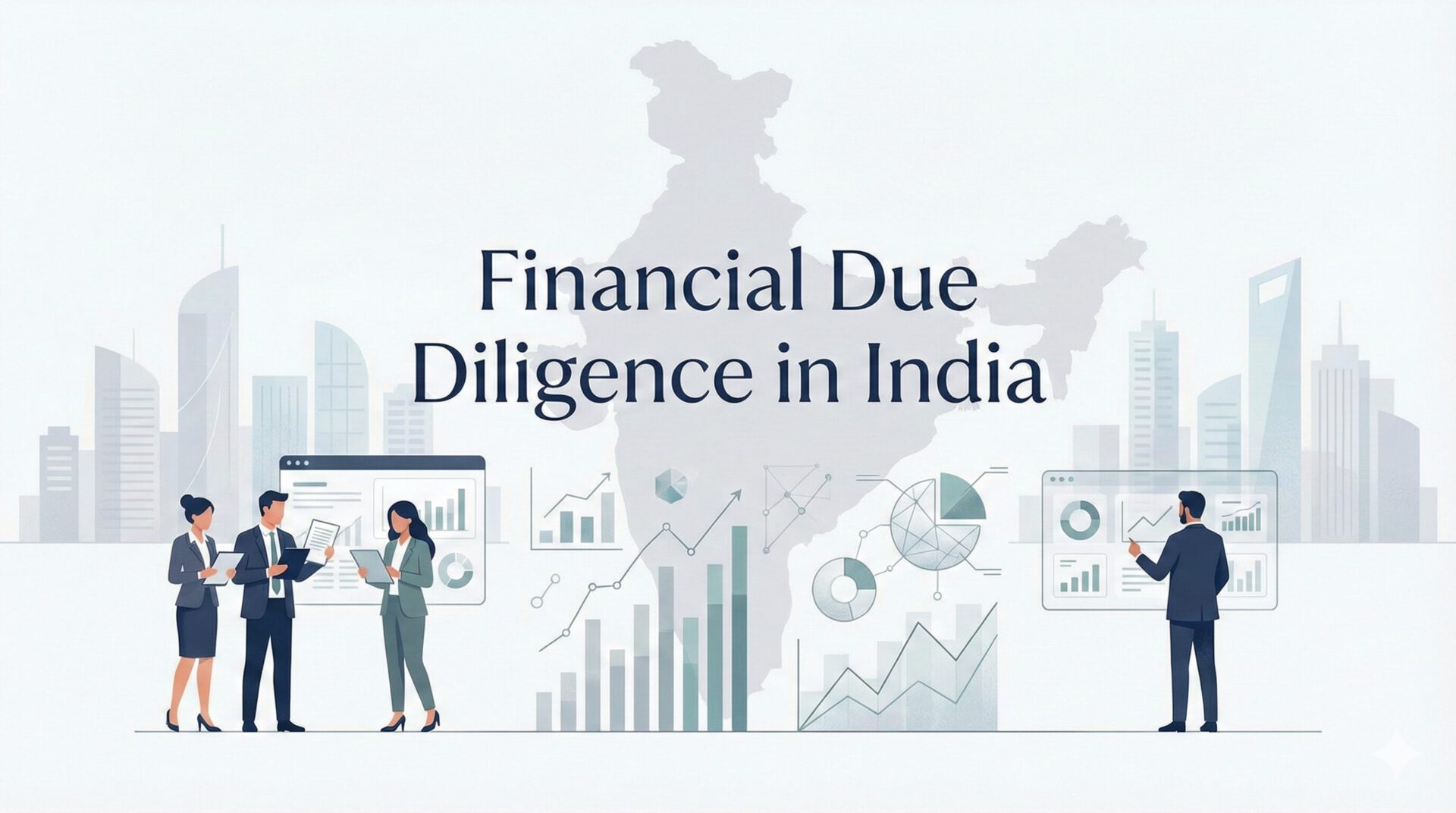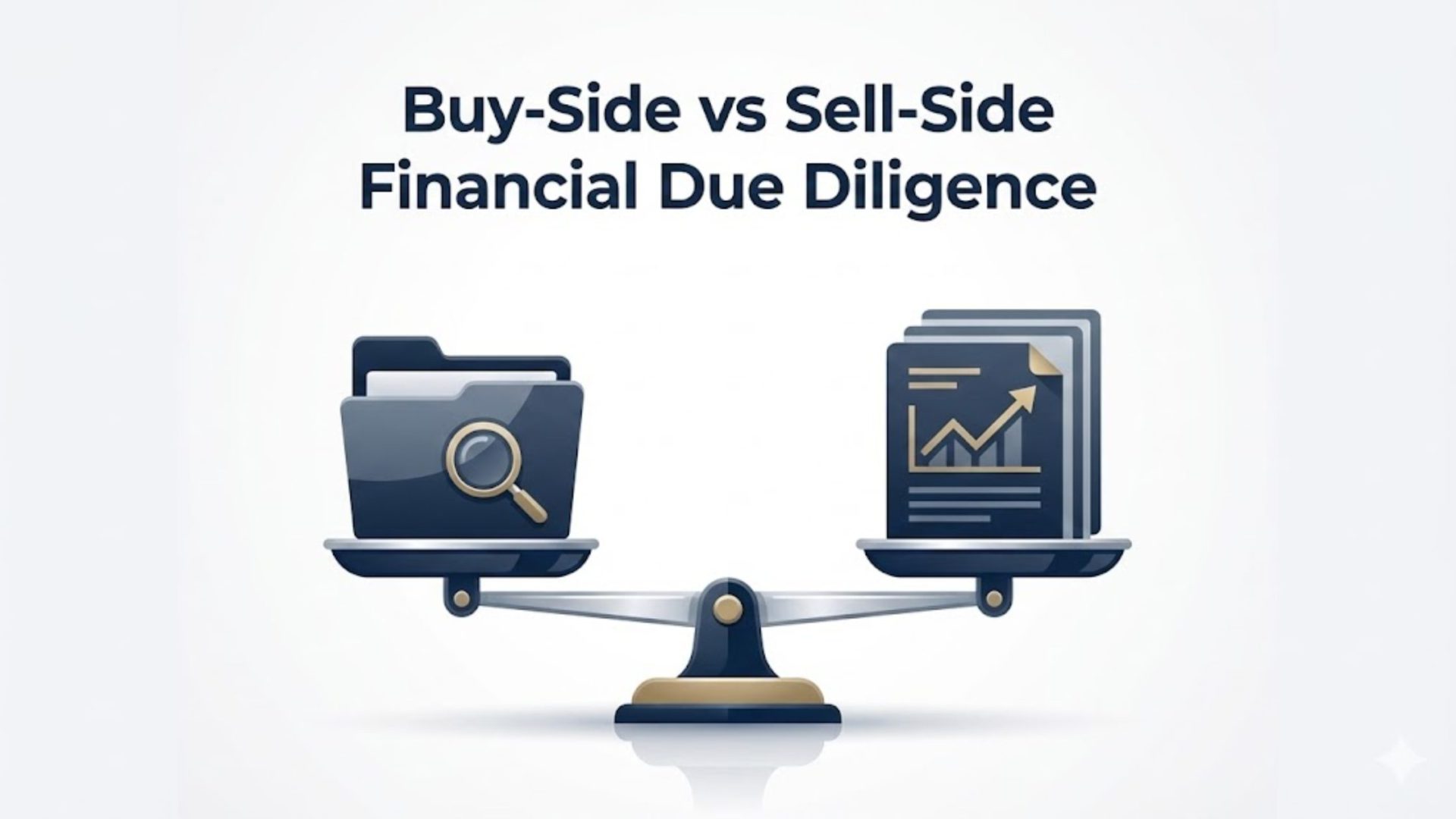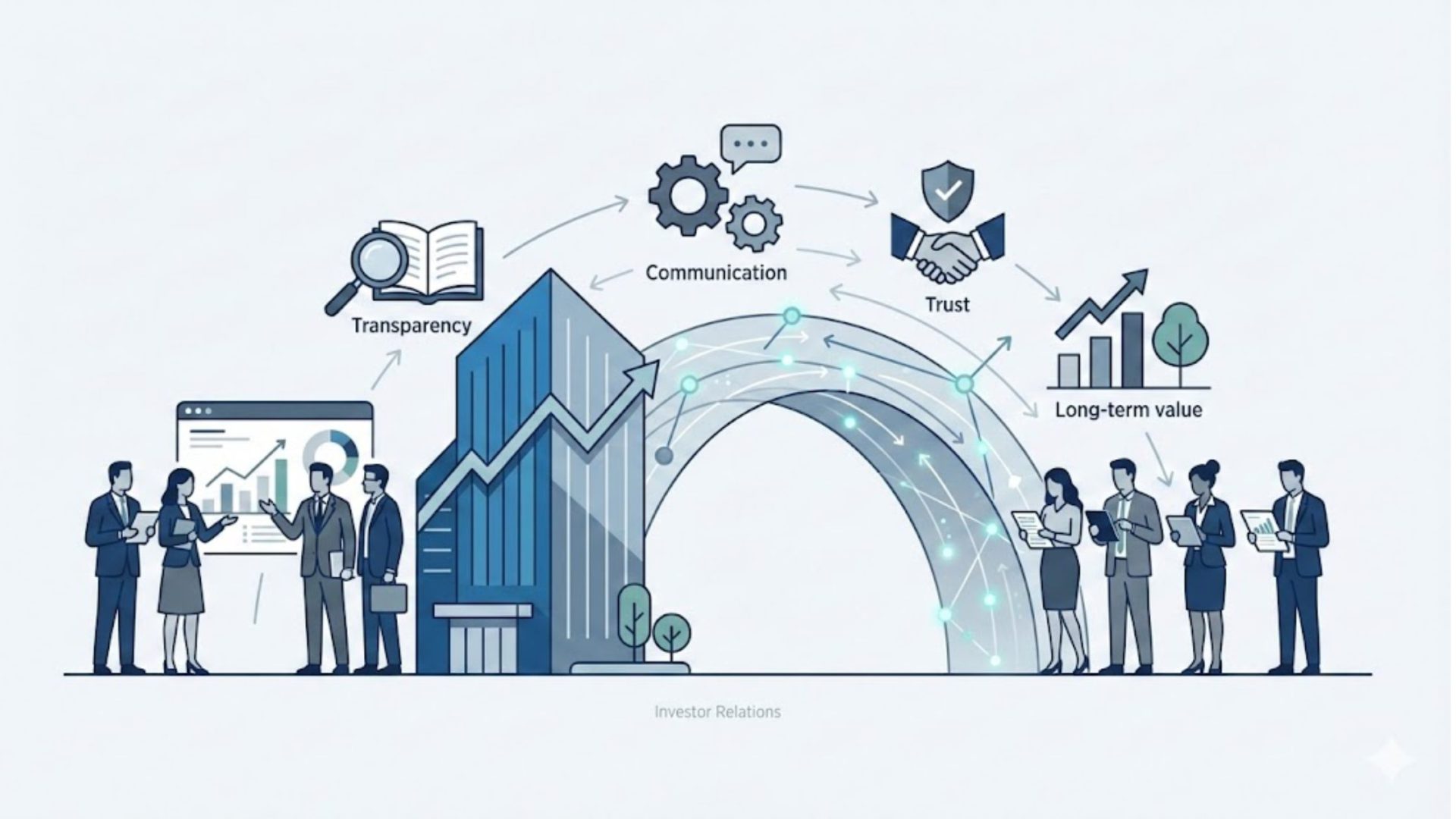Ultimate 360° Guide to Fund Due Diligence & M&A Due Diligence Excellence
Published on 15/11/2025

A Deep Institutional Handbook for AIFs, PE, VC, Hedge Funds & M&A Leaders
In the modern era of private capital markets, due diligence has evolved into far more than an investment hygiene step. It has become a full-spectrum institutional discipline — the backbone of trust, accountability, and performance in global and Indian fund ecosystems. As alternative investment funds (AIFs), private equity (PE) firms, venture capital (VC) funds, hedge funds, sovereign investors, and UHNI family offices expand their footprint, the structure and rigor of due diligence practices are defining who attracts long-term capital and who does not.
Today, investors do not simply allocate based on pitch flair, reputation, or market presence. They allocate capital where they see evidence of governance maturity, risk discipline, and institutional readiness. Fund managers must display control over not just thesis and strategy, but systems, processes, internal oversight frameworks, valuation methods, cybersecurity architecture, regulatory alignment, and ethical investment behavior. In short, due diligence has transitioned from a “pre-investment check” to a continuous trust-building system.
The global investment industry has learned difficult lessons from over-valued unicorn losses, governance scandals, sudden bankruptcies, fraud-ridden financial statements, cyber breaches, and regulatory penalties. Markets reward funds that embed operating maturity, transparent reporting, and proactive risk management — not funds dependent solely on founder charisma or momentum-driven investing. In India, too, SEBI’s increasing focus on AIF governance, expense transparency, fair valuation, AML compliance, and LP reporting has signaled a new chapter. The era of disciplined capital stewardship has arrived.
This comprehensive guide explains each dimension of due diligence in fund management and M&A transactions: operational rigor, founder evaluation, cultural assessment, valuation defense, cybersecurity readiness, ESG expectations, legal compliance, post-investment monitoring, and LP reporting hygiene. It also naturally integrates semantic coverage across due diligence services in India, best financial due diligence firms, merger and acquisition consultants, merger and acquisition consulting firms in India, and M&A advisory firms in Mumbai, Delhi, Bengaluru, Dubai & Singapore.
🎯 Why Due Diligence Matters More Than Ever in the Fund Landscape
Years ago, due diligence meant reviewing financials and legal filings. Today’s investment universe demands far more. Stakeholders expect continuous diligence, digital audit trails, transparent dashboards, and documented risk controls. Large LPs examine not only pre-investment checks but also the maturity of post-investment governance, ongoing valuation adjustments, and how managers communicate during downturns.
Technology has created opportunity, but it has equally amplified risk. Cloud-based environments, digital payment ecosystems, cross-border fund flows, crypto assets, and fintech interfaces require greater vigilance. The emergence of deepfake identity scams, AI-generated documentation, counterfeit revenue streams, and manipulated valuation models makes traditional diligence insufficient. As a result, fund managers must demonstrate digital intelligence along with financial scrutiny.
In India’s AIF landscape, investors want clarity around fee structures, expense allocations, side-letter fairness, co-investment discipline, and portfolio reporting frequency. International investors expect FATF-aligned AML systems, PMLA adherence, fair valuation, independent third-party verification, and real-time governance dashboards.
Simply put, due diligence protects value, reputation, and future fundraising ability. Weak diligence may allow deals to happen, but strong diligence ensures they succeed.
🧠 Operational Due Diligence: Institutionalizing the Investment Engine
Operational due diligence (ODD) has become the heart of fund credibility. A fund without strong operational governance risks financial misreporting, fraud exposure, cash leakage, poor portfolio monitoring, and regulatory penalties. Modern ODD evaluates how a fund actually works:
It assesses whether the fund can operate independently of founding personalities, emotion-driven decision-making, or improvised processes. Institutional investors increasingly request RACI matrices, policy manuals, cyber logs, expense approvals, MIS automation proof, investment committee minutes, conflict-of-interest documentation, and independent oversight systems.
Funds must demonstrate that their back office and mid-office functions are controlled, auditable, and technology-enabled. Manual spreadsheets, email-only workflows, informal decision trails, and founder-centric execution are considered operational red flags.
ODD also extends to vendors, legal counsel selection, auditors, cybersecurity partners, cloud providers, valuation consultants, and fund accounting support. Funds in India often outsource to specialist partners, including the best financial due diligence firms, fund administration experts, compliance auditors, and tech governance firms.
The benchmark has risen: If a fund cannot pass institutional ODD, it cannot attract institutional capital.
🚀 Strategic Due Diligence: Validating Vision With Execution Reality
Strategic due diligence tests whether the fund’s investment thesis is truly differentiated and executable. Markets witnessed phases where funds followed hype waves without independent conviction — from cryptocurrency to ed-tech to digital commerce to hyped AI startups. The correction cycles that followed raised scrutiny.
True strategic DD examines whether the fund can identify mispriced opportunities, deploy capital prudently, and extract value predictably. It forces managers to articulate sourcing logic, sector edge, competitive moat understanding, value-creation playbook, exit confidence, and downside-risk insulation. A fund thesis must be tested against macro environment shifts, regulatory risks, consumer demand patterns, and operating feasibility.
Strategic maturity means resisting valuation frenzy, prioritizing real earnings power over revenue glamour, and preferring thoughtful scaling rather than explosive burn. This is particularly important in VC contexts where founder psychology, resilience, and ethical leadership matter as much as technology roadmaps.
When funds can demonstrate strategic clarity plus execution playbooks, investors gain conviction—not in a narrative, but in a system.
💼 Private Equity, Venture Capital & AIF Due Diligence: Sector-Specific Deep Dive
Private Equity (PE)
PE due diligence requires forensic rigor. Mature businesses often carry hidden debt, disguised cash flows, legacy liabilities, informal governance, unresolved litigations, and unsustainable financial engineering. PE diligence focuses on cash realization, leadership stability, cultural resilience, vendor risk, contract enforceability, and turnaround feasibility.
Post-acquisition integration also matters — cultural misalignment and leadership turnovers frequently undermine deals faster than financial misjudgments.
Venture Capital (VC)
VC diligence is a behavioral and strategic science. Early-stage founders often lack governance maturity. Cap tables need verification, tech stacks require architecture review, and customer retention needs validation beyond vanity metrics. Unit economics, burn multiple, capital runway intelligence, product defensibility, and customer love matter more than pitch showmanship.
Alternative Investment Funds (AIFs)
AIFs in India operate under a rising compliance bar. SEBI expects clarity on valuation framework, investor communication, reporting frequency, fee transparency, AML checks, UBO reporting, cyber readiness, custodian controls, and fairness in side agreements.
AIF managers must demonstrate fiduciary seriousness, independent governance layers, and evidence-ready reporting trails. Funds under Categories I, II & III have distinct compliance exposure that demands expert advisory, and many institutional funds engage merger and acquisition consultants and due diligence specialists to strengthen systems.
🏛️ The Institutional Diligence Lifecycle
True diligence is a continuum. It begins with pre-investment checks, strengthens in the first 90–120 days post-investment, and continues throughout the investment lifecycle. Institutional investors expect funds to maintain evidence trails, audit logs, system controls, cybersecurity testing, valuation notes, and IC rationales — not selectively, but consistently.
Continuous diligence helps funds identify risks early: deteriorating unit metrics, leadership fatigue, cultural breakdown, regulatory breaches, cash flow deterioration, and customer churn signals. Real-time feedback loops enable course correction.
This culture differentiates disciplined funds from speculative allocators. Sophisticated investors now ask funds to show how they monitor—not just when they monitor.
🔐 Technology, Cybersecurity & AI-Risk Due Diligence
Technology has redefined what due diligence must cover. Today’s investment ecosystem is digital, cloud-native, API-driven, and AI-augmented. This brings innovation but also attack vectors. Funds must show they enforce cybersecurity protocols, MFA usage, encryption standards, vendor security checks, backup policies, penetration tests, employee cyber awareness training, and ransomware recovery readiness.
AI adds a new layer: validating IP authenticity, training data sources, model explainability, ethical usage standards, hallucination controls, and algorithmic compliance in industries like fintech and healthcare. Tech maturity has become a fiduciary expectation, not an innovation perk.
Funds increasingly consult digital assurance firms alongside financial audit partners. We now see the rise of cyber due diligence, data governance reviews, and AI compliance audits as standard practice, especially in cross-border M&A deals and PE technology buyouts.
🌿 ESG, Ethical Investing & Sustainability Diligence
Environmental, Social, and Governance (ESG) diligence is gaining force globally. It assesses climate impact considerations, ethical sourcing, inclusive hiring, board diversity, supply-chain transparency, and social responsibility.
ESG claims without audit trails are treated as greenwashing. Investors expect ESG due diligence maturity — reporting, carbon intelligence, ethical checks, and governance disclosures. Compliance, ethics, and sustainability now influence valuation, exit preference, and global fundraising ability.
Funds pursuing renewable energy, clean tech, manufacturing, and consumer sectors face heightened ESG expectations. Many partner with specialist sustainability consultants and responsible-investment audit teams to align with global standards.
🧩 Handling Complex & Cross-Border Transactions
Cross-border investments require layered diligence — regulatory mapping, multi-jurisdiction compliance, international tax structuring, FX flow clarity, sanctions screening, data transfer security, and market-entry risk assessment.
Fintech, NBFCs, healthcare, biotech, renewable infrastructure, and AI deals demand specialist advisors with deep industry knowledge. Multi-disciplinary diligence teams may include forensic accountants, regulatory lawyers, cybersecurity experts, valuation specialists, ESG advisors, and technology architects.
This is why top funds engage merger and acquisition consulting firms in India, SEA, GCC, and Europe to bring ecosystem intelligence.
As India integrates more deeply into global private capital flows, cross-border sophistication is no longer optional — it is competitive survival.
⚙️ Continuous Monitoring & LP Communication Discipline
Modern LPs expect transparency — not annual summaries but frequent, structured, dashboard-grade reporting. Funds maintain governance logs, valuation explanations, IC minutes, AML/KYC trails, cyber logs, and ESG files to build investor confidence.
LPs look for predictability: consistent communication cadence, proactive disclosure style, operational accountability, and real-time narrative around risks and shifts. Funds that avoid uncomfortable conversations lose trust quickly; the best funds address concerns early and openly.
Institutional reporting drives fundraising success, LP longevity, market reputation, and regulator confidence. It is what separates local funds from global-minded funds.
🧾 The New Role of Professional Due Diligence Partners
The sophistication of fund governance has created demand for expert partners — fund administration firms, audit specialists, valuation firms, best financial due diligence firms in India, compliance advisors, cybersecurity consultancies, and strategic M&A advisory firms.
Mumbai, Bengaluru, Delhi, Dubai, and Singapore have emerged as hubs for institutional advisory talent. These firms help funds implement world-class systems, strengthen reporting quality, build cybersecurity maturity, prepare for fundraising, and satisfy global LP expectations.
Funds that lean on specialized expertise grow faster and inspire higher investor trust. Institutional investors prefer funds that can demonstrate independent diligence and a third-party verification culture.
🧭 The Essence of Institutional Diligence
At its core, due diligence is not paperwork. It is philosophy. It is behavior. It is a culture that says:
We protect capital as if it were our own — with discipline, transparency, and humility.
Funds that internalize this mindset outperform across cycles. They navigate downturns better, recruit superior leadership, attract disciplined entrepreneurs, and cultivate long-term LP partnerships. Trust becomes compounding capital.
Diligence builds legacy. Governance builds brand. Transparency builds reputation. And in investment management, reputation is currency.
🔔 Final Word — And a Better Way Forward
The future belongs to evidence-driven investment managers, not storytellers.
Capital will flow toward those who demonstrate:
- Governance maturity
- Operational resilience
- Cyber and risk preparedness
- Ethical and ESG-aligned stewardship
- Technology-enabled reporting
- Consistent LP communication
- Independent oversight culture
If your fund, family office, or corporate M&A desk is building or scaling your due diligence framework, we can assist.
✅ Advisory Support We Provide
- Institutional-grade fund compliance systems
- Financial, operational & forensic due diligence
- AIF governance setup & SEBI-ready controls
- M&A advisory, structuring & integration support
- Cyber & digital-risk assessments
- Investor reporting dashboards and SOP frameworks
We help you strengthen trust — and trust attracts capital.
🚀 Additional Critical Due Diligence Dimensions
These sections fill all remaining due-diligence gaps: tax due diligence, financial due diligence, AI/data integrity, forensic diligence, red flags, LP DD expectations, SEBI updates, tools, checklists, and more — while keeping your original writing untouched.
🧾 Financial Due Diligence (FDD): The Foundation of Deal Confidence
Financial due diligence goes beyond reviewing audited statements. It analyzes the true earning power, cash integrity, and sustainability of the business.
Key evaluations include:
- Quality of Earnings (QoE)
- Revenue recognition patterns
- Working capital normalization
- Cash flow conversion
- Debt-like items and off-balance-sheet exposure
- Profitability consistency
- Forecast realism vs. historical performance
PE and M&A advisory firms rely heavily on FDD to understand whether value creation is structurally possible or artificially inflated.
“Financial due diligence services in India” and global dealmaking standards increasingly demand independent QoE reports, forensic reconciliations, and operational walkthroughs.
🧮 Tax Due Diligence: Avoiding Expensive Surprises
Tax diligence is often underestimated but can make or break a deal — especially in India.
Tax DD typically reviews:
- GST compliance and pending litigations
- Income tax exposures
- Transfer pricing risks in cross-border structures
- TDS positions and interest liabilities
- Permanent establishment (PE) exposure
- Indirect tax reconciliation issues
- MAT/AMT obligations for certain entities
Top merger and acquisition consulting firms in India and global PE funds insist on detailed tax positions to avoid future penalties, interest obligations, or regulatory scrutiny.
🕵️ Forensic Due Diligence: Detecting Fraud, Manipulation & Hidden Risks
Forensic DD digs deeper than conventional diligence — identifying:
- promoter background discrepancies
- related-party transactions
- shell vendors
- GST mismatch red flags
- inflated revenue
- duplicate invoicing
- insider collusion or kickbacks
- Irregular cash withdrawals
- litigation history beyond public databases
Forensic diligence has become standard in India, especially for AIF Category II & III managers and cross-border M&A transactions.
🧬 AI, Data Integrity & Digital Due Diligence
Given rising digital risks, funds now perform:
- AI model governance review
- Data lineage & training data audits
- Algorithmic fairness & bias checks
- IP ownership validation
- Deepfake identity risk assessment
- Validation of AI-generated documents
- Cyber resilience scoring
- SOC 2 & ISO 27001 compliance checks
AI-intensive startups require technology due diligence, IP due diligence, and codebase analysis to ensure real defensibility.
📊 Expense Allocation & Fee Transparency Diligence (SEBI Hot Topic)
SEBI’s recent amendments highlight the importance of:
- fee allocation fairness
- shared-resource cost justification
- valuation-related expense disclosure
- expense caps and prohibited charges
- clarity on carry, hurdle, and waterfall
- transparency in “pass-through” expenses
Investors want strong internal controls, independent verification, and clear “expense audit trails.”
🧩 LP (Limited Partner) Due Diligence Expectations
Modern LPs evaluate far more than just returns. Their DD includes:
- ILPA DDQ responses
- ESG & climate-risk reporting
- cybersecurity maturity
- conflict-of-interest handling
- Fund Manager Succession Planning
- Risk Management Architecture
- investment committee independence
- valuation methodology consistency
Institutional LPs expect dashboards, SOP-driven reporting, and consistent governance behavior.
⚖️ Regulatory & SEBI Due Diligence (New 2024–25 Focus Areas)
SEBI’s updated rules for AIFs emphasize:
- fair valuation and independent valuers
- third-party oversight of compliance
- restrictions on round-tripping
- enhanced liquidation processes
- side-letter disclosure and fairness
- standardization of reporting formats
- verification of investor category & UBO
- cyber & data governance compliance
AIFs with strong regulatory diligence enjoy faster fundraising cycles and reduced compliance risk.
🧭 Post-Investment Value-Creation & Monitoring Diligence
Beyond closing the deal, funds must track:
- customer churn and unit metrics
- leadership stability & team morale
- product roadmap execution
- pricing power & gross margin expansion
- operational KPIs via dashboards
- working capital and liquidity stress signals
- on-ground cultural dynamics
Continuous diligence helps avoid portfolio blow-ups and supports timely intervention.
🚨 Red Flags Checklist
A practical list of early red flags investors look for:
- sudden revenue spikes without justification
- excessive related-party transactions
- negative working capital dependence
- mismatched MIS vs audited financials
- promoter lifestyle beyond income
- unstable leadership or governance churn
- Repeated auditor changes
- offshore routing with unclear commercial logic
- cash discounts exceeding industry norms
- legal disputes hidden from standard searches
These signs often indicate deeper structural weaknesses.
🛠️ Tools, Platforms & Technology for Modern Due Diligence
Funds and M&A advisors increasingly use:
- Virtual Data Rooms (Intralinks, Datasite, DealRoom)
- Portfolio monitoring platforms (Carta, Visible, Klaviyo BI)
- Risk dashboards (Power BI / Tableau)
- Cybersecurity scoring engines
- ESG reporting & carbon intelligence tools
- AI-driven diligence analytics
- Compliance workflow suites
These tools accelerate evidence gathering, reporting, and audit trails.
📋 Master Due Diligence Checklist
Foundational Diligence
- Corporate structure
- Licenses, registrations, approvals
- Shareholding patterns, cap table, UBO
Financial Diligence
- QoE
- Cash flow analysis
- Working capital
- Forecast stress testing
Operational Diligence
- SOPs
- Internal controls
- HR policies
- Procurement systems
Strategic Diligence
- Target markets
- Competitive landscapes
- Pricing models
- Growth pathways
Regulatory & SEBI Compliance
- AIF-specific regulations
- AML, KYC, and FATF systems
- Investment committee governance
Technology & Cyber Diligence
- IT architecture
- Cloud & data governance
- Security logs
- VAPT outcomes
ESG & Sustainability
- Carbon footprint
- Diversity
- Ethical supply chain
Legal & Contractual Diligence
- Litigation
- Contracts
- IP
- Employment laws
Tax Diligence
- GST
- Income tax
- Transfer pricing
- Indirect tax risks
Forensic Diligence
- Historical fraud checks
- Lifestyle mismatches
- Vendor authenticity
Conclusion: Building a Future-Ready, Evidence-Driven Due Diligence Culture
In today’s private capital landscape, due diligence is no longer a box-ticking ritual — it is the core operating system that defines whether a fund earns trust, attracts capital, reduces risk, and delivers outperformance. PE, VC, AIFs, hedge funds, and corporate M&A teams that embrace institutional-grade diligence build a foundation that withstands market cycles, governance shocks, valuation volatility, cyber threats, and regulatory scrutiny.
A truly effective diligence framework goes beyond financial validation. It integrates operational discipline, strategic clarity, regulatory alignment, tax intelligence, ESG values, technology resilience, forensic safeguards, and post-investment monitoring into a single unified governance engine. This 360° approach not only protects capital — it strengthens decision quality, accelerates value creation, improves portfolio stability, and enhances transparency for LPs and global investors.
As India enters a new era of SEBI-driven governance maturity and global private capital convergence, the funds that will lead are those that operate with evidence, rigor, independence, and ethical stewardship. They don’t rely on narratives — they rely on systems. They don’t depend on charisma — they depend on controls. And they don’t chase momentum — they build conviction with data, discipline, and due diligence excellence.
The message is simple:
Strong diligence isn’t an expense — it’s a competitive advantage. The deeper the diligence, the stronger the trust. And in the investment world, trust is the ultimate currency.
📣 Call to Action (CTA)
Strengthen your fund operations with expert support.
We at Inspirigence Advisors specialize in Fund Accounting, Fund Administration, Regulatory Compliance, Accounting Services, CFO/COO Functions, Investor Relations, and Advisory for Private Equity, Hedge Funds, and corporate entities.
Partner with us to build a resilient, governance-driven investment ecosystem.
1. What is Fund Due Diligence, and why is it important for AIFs, PE, VC, and Hedge Funds?
Fund Due Diligence is the structured assessment of a fund’s financial stability, governance maturity, operational controls, and regulatory compliance. For AIFs, Private Equity, Venture Capital, and Hedge Funds, it is essential for ensuring SEBI compliance, protecting investor capital, and maintain long-term performance discipline. It helps identify critical risks such as valuation inconsistencies, weak AML/KYC processes, liquidity gaps, cybersecurity vulnerabilities, and fund manager credibility issues—making it a core requirement for institutional investors and LPs globally.
2. What are the key components of a robust M&A Due Diligence process?
A complete M&A Due Diligence review typically covers:
-
Financial Due Diligence (FDD): QoE, revenue quality, cash flow, debt exposure
-
Tax Due Diligence: GST, transfer pricing, permanent establishment risk
-
Legal Due Diligence: contracts, litigations, IP rights, statutory compliance
-
Operational Due Diligence: SOPs, HR, procurement, internal controls
-
Commercial & Strategic Analysis: competition, market share, scalability
-
Technology & Cybersecurity DD: IT architecture, data governance, cyber posture
-
ESG & Sustainability DD: governance practices, environmental impact
This holistic approach reduces deal risk, prevents overvaluation, uncovers hidden liabilities, and ensures smoother post-merger integration.
3. How does SEBI regulate Due Diligence for AIFs in India?
SEBI enforces stringent AIF governance norms to enhance transparency and investor protection.
Key SEBI-driven Due Diligence requirements include:
-
Independent valuation and NAV reporting
-
Detailed expense transparency and audit trails
-
AML/KYC compliance & UBO verification
-
Side-letter fairness and conflict-of-interest controls
-
Standardized LP reporting and disclosure frameworks
-
Cybersecurity, data governance, and technology readiness
AIF managers must maintain an evidence-driven, documented Due Diligence system to satisfy LP audits and regulatory inspections.
4. What is the difference between Financial Due Diligence and Forensic Due Diligence?
Financial Due Diligence (FDD) evaluates the financial health of a company—revenue quality, profitability, working capital, cash flows, and forecast reliability.
Forensic Due Diligence, on the other hand, focuses on fraud detection, identifying issues such as fake invoices, shell vendors, inflated revenue, GST mismatches, related-party abuse, and hidden liabilities.
Both are essential for AIFs, PE/VC funds, and M&A buyers to validate investment integrity and prevent governance or financial surprises.
5. Why is Technology and Cybersecurity Due Diligence critical for modern investors?
With rising digitalisation, investors face advanced risks related to:
-
Data breaches and ransomware
-
Weak access controls & encryption failures
-
Deepfake identity and document fraud
-
Vendor security lapses
-
IP theft and unauthorized data access
Technology Due Diligence validates IT infrastructure, data governance, cybersecurity frameworks, model governance (AI/ML), and compliance with standards like SOC 2 and ISO 27001.
It is especially crucial for fintech, SaaS, AI-driven startups, NBFCs, and tech-heavy M&A deals.
6. How do professional Due Diligence advisory firms support AIFs, PE, VC, and Hedge Funds?
Specialized Due Diligence firms help fund managers build institutional-grade governance by offering:
-
Independent Financial, Operational & Forensic Due Diligence
-
SEBI-compliant AIF governance and reporting frameworks
-
Fund accounting & fund administration services
-
Cybersecurity and digital-risk assessments
-
M&A Due Diligence, valuation support & integration planning
-
LP reporting dashboards, SOPs, and compliance systems
Partnering with experienced Due Diligence consultants strengthens transparency, reduces compliance exposure, enhances investor trust, and accelerates fundraising success.


